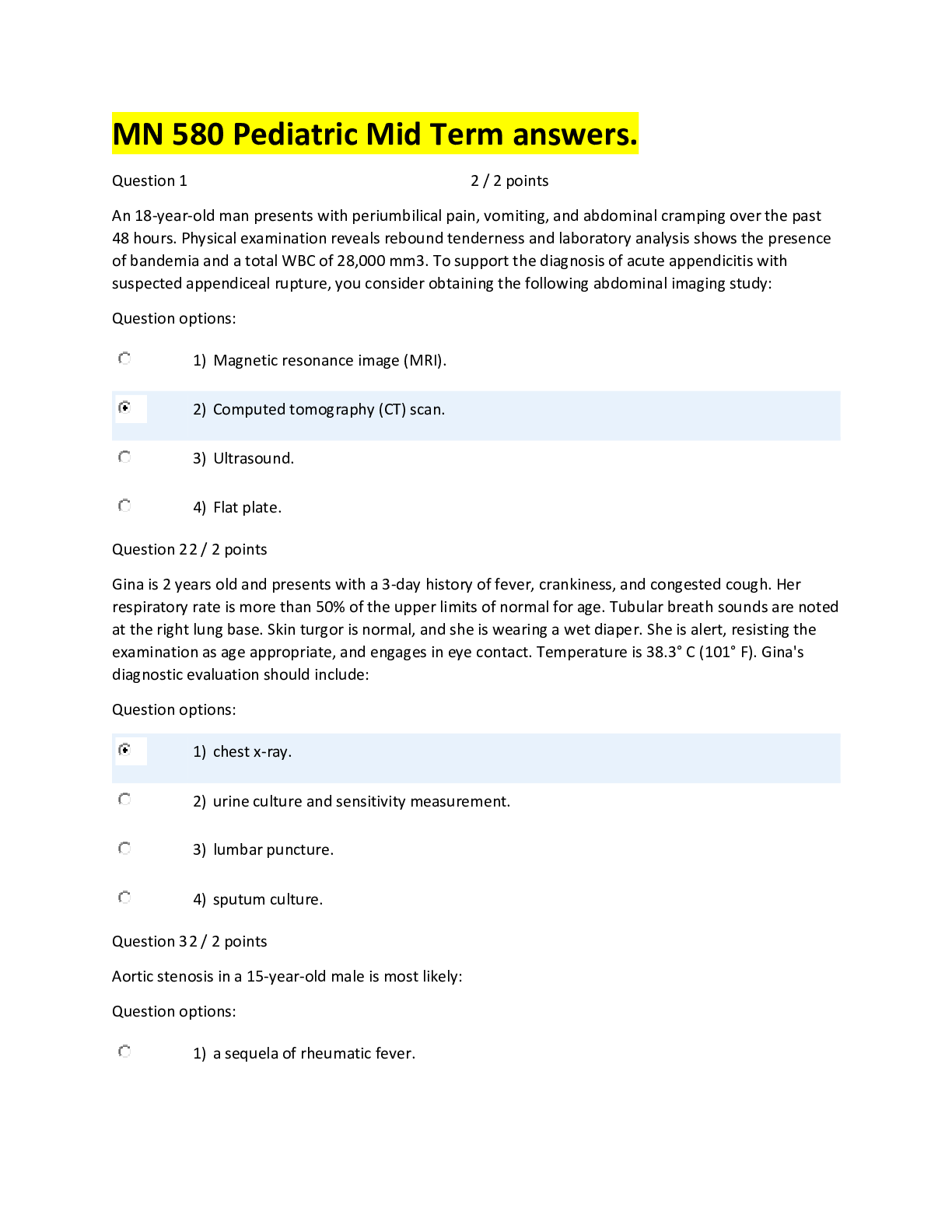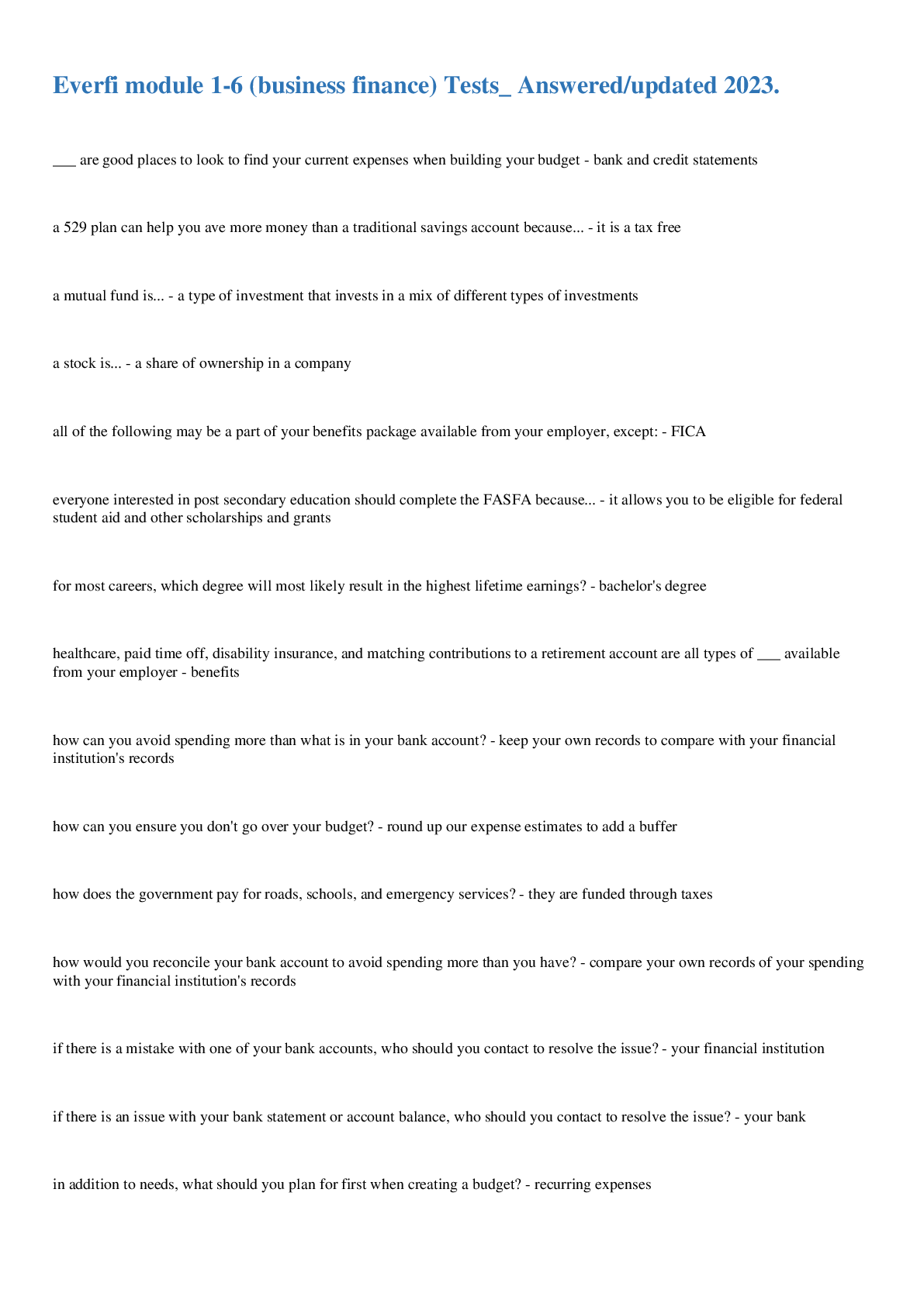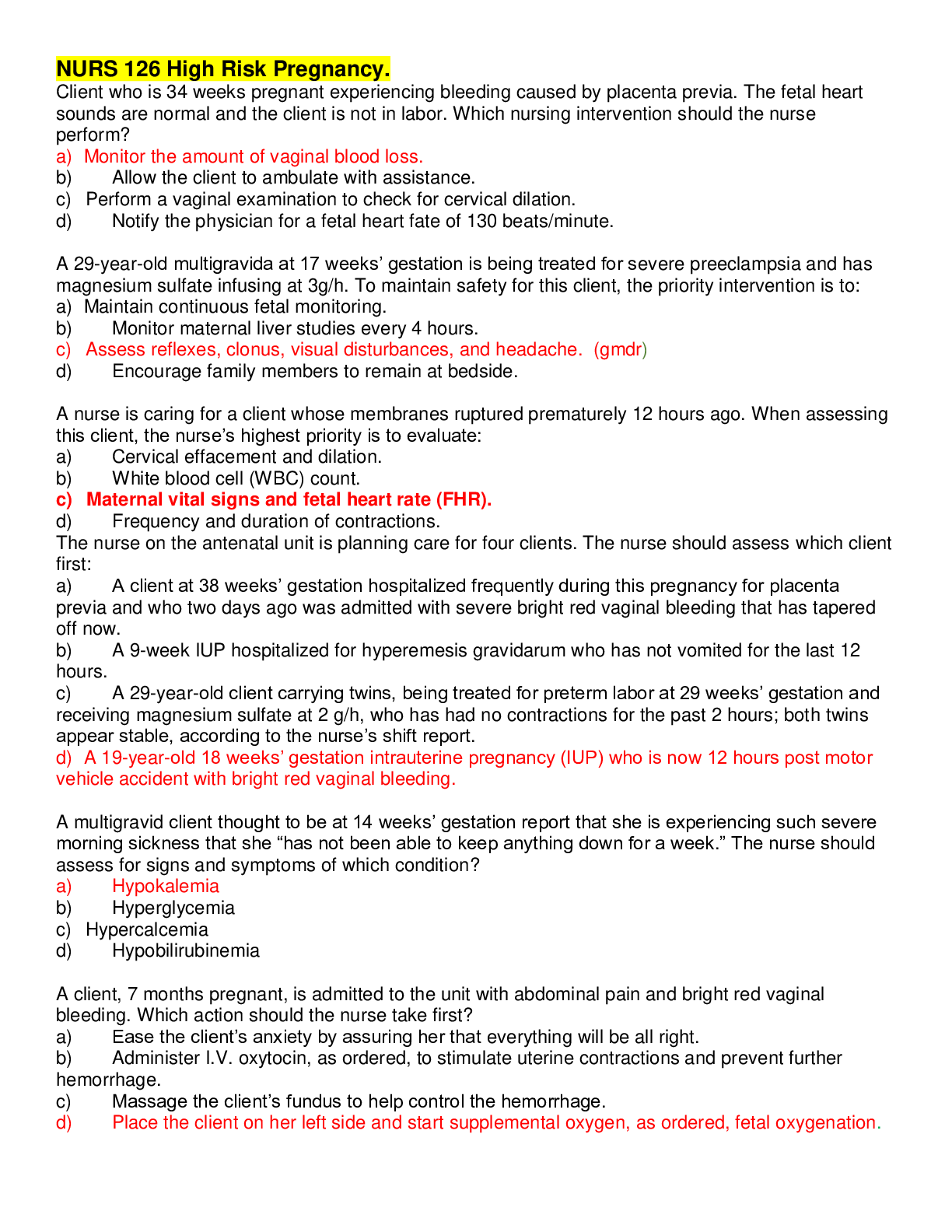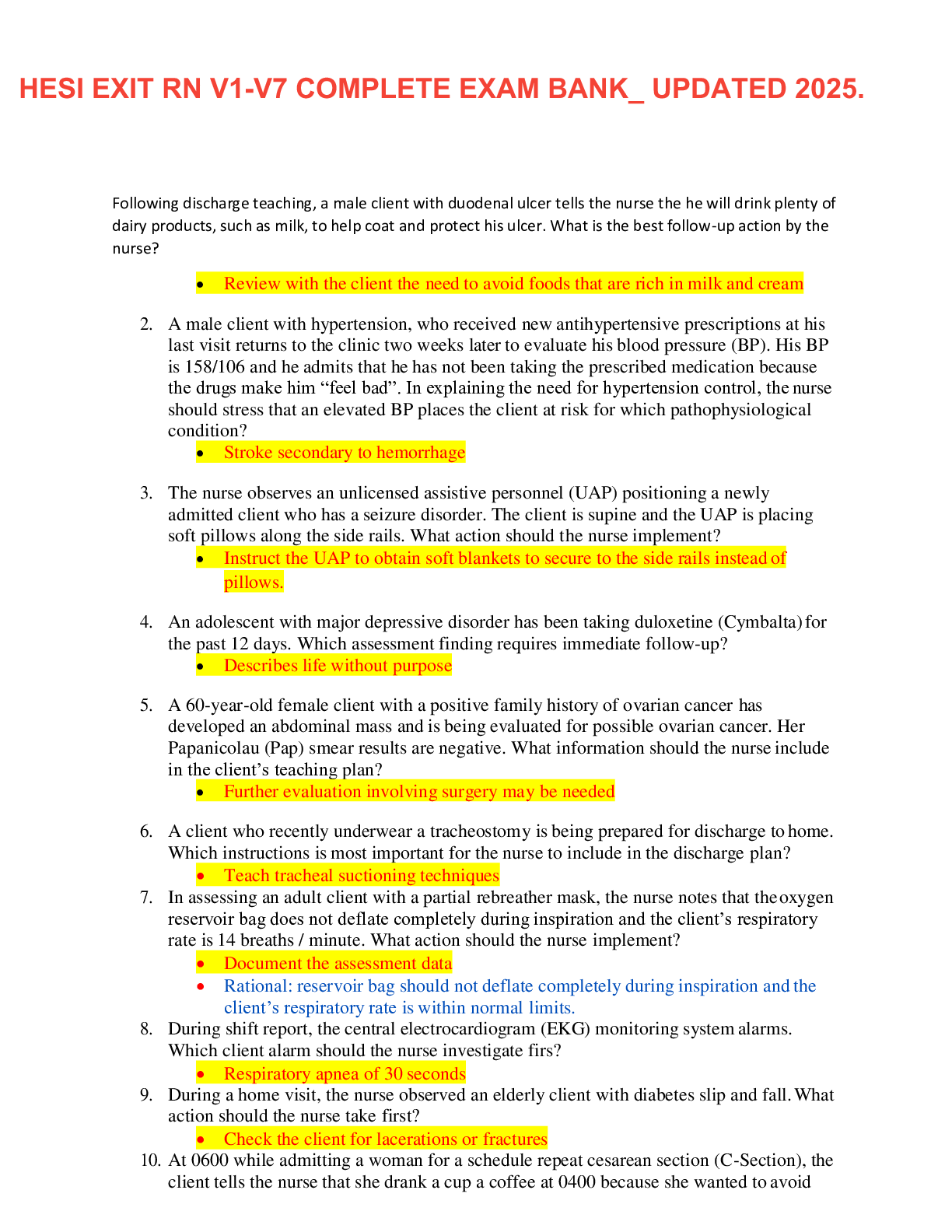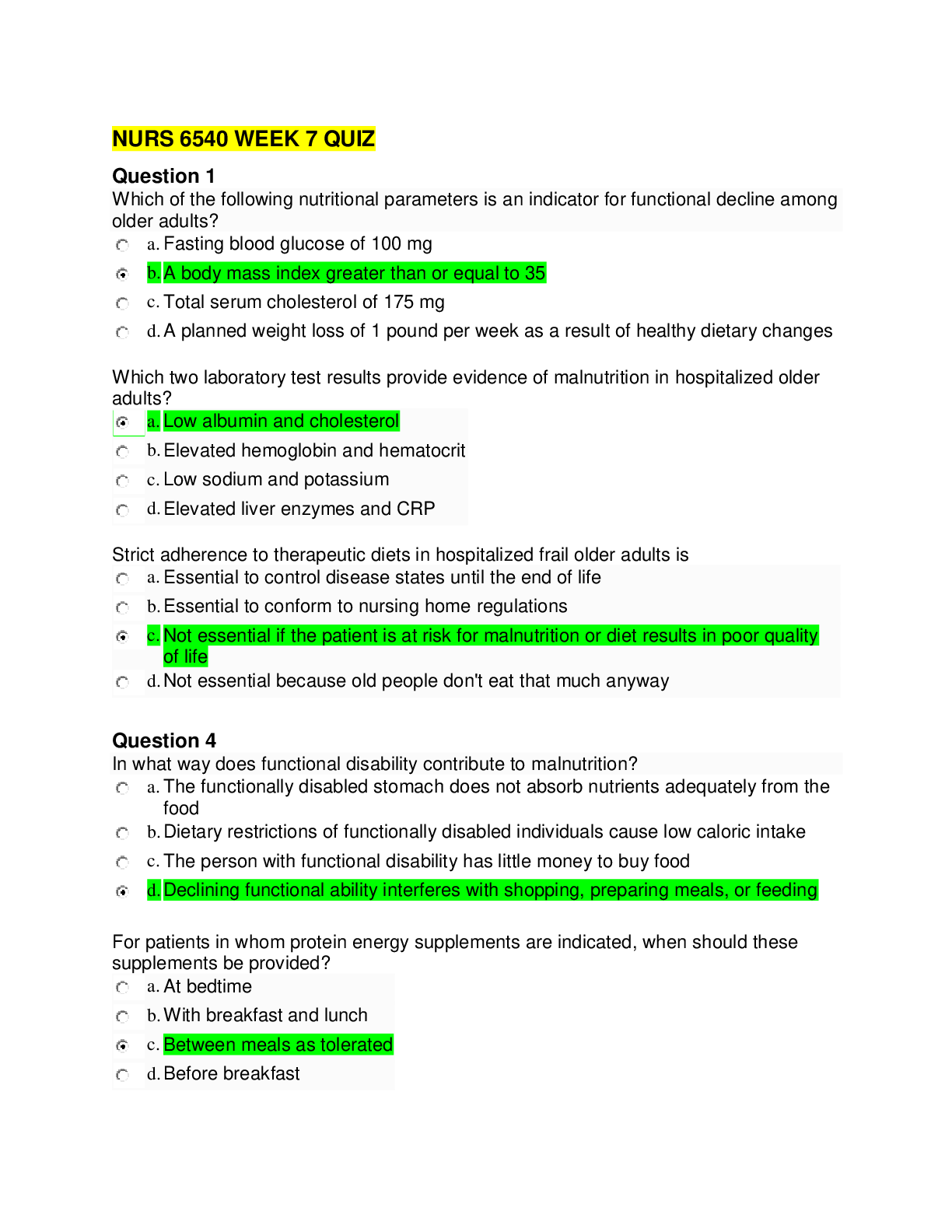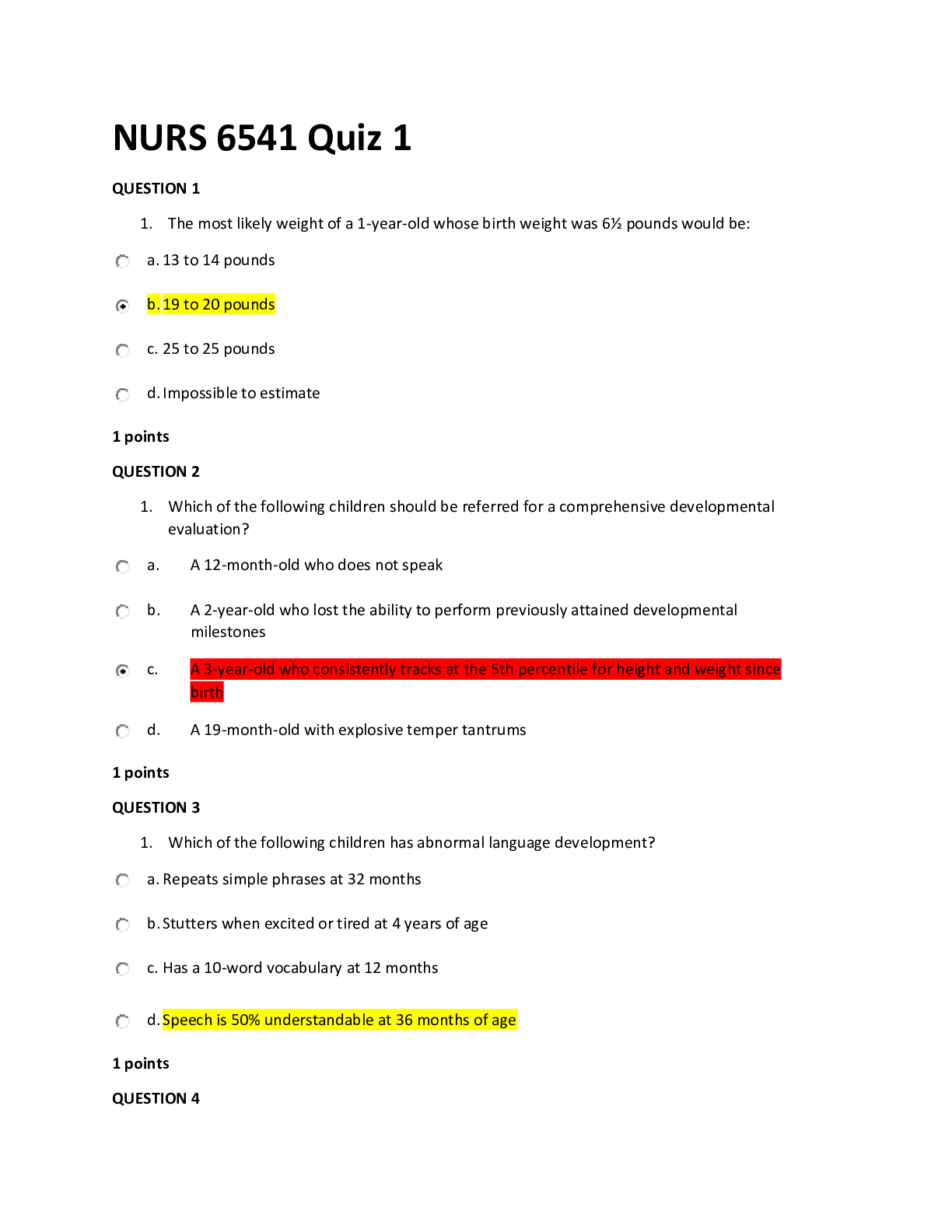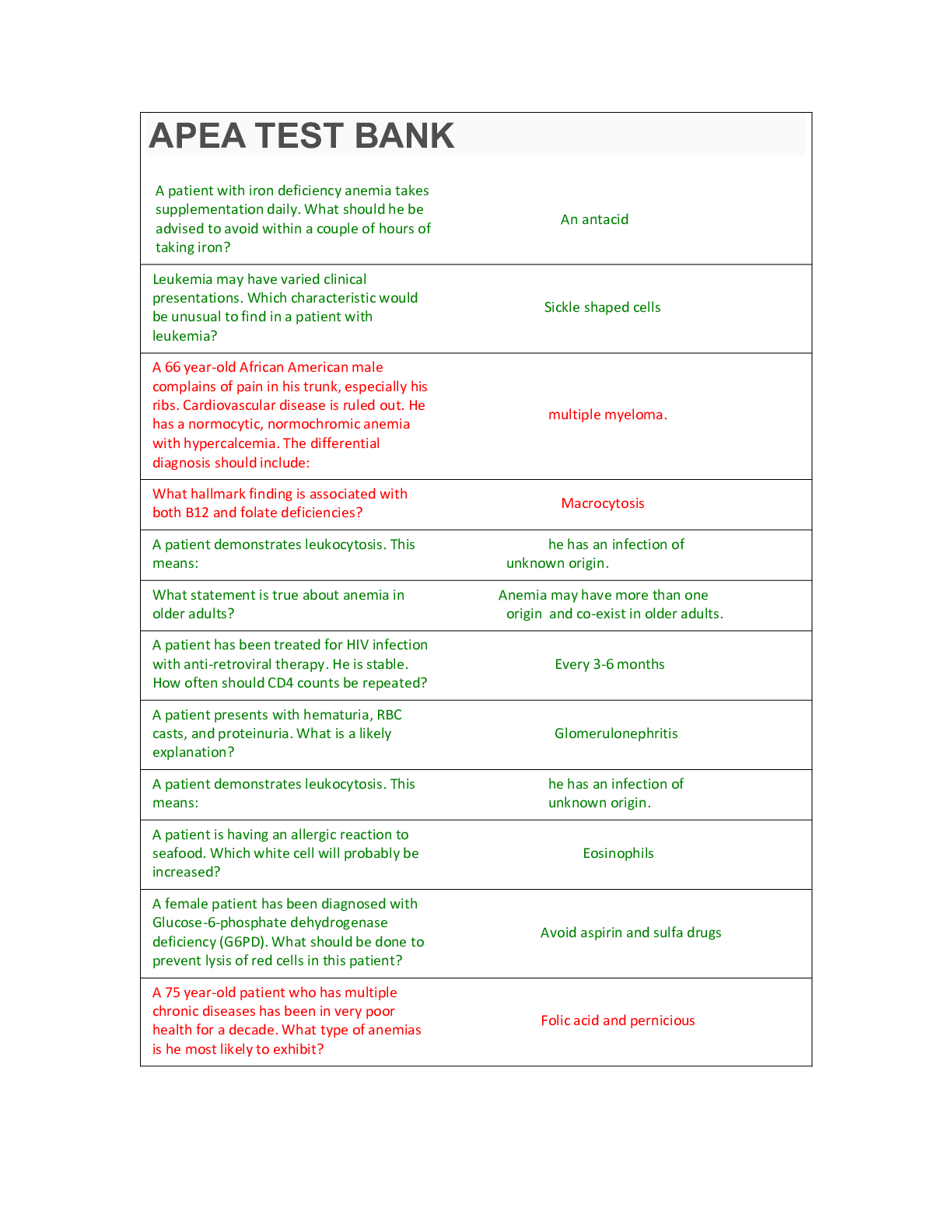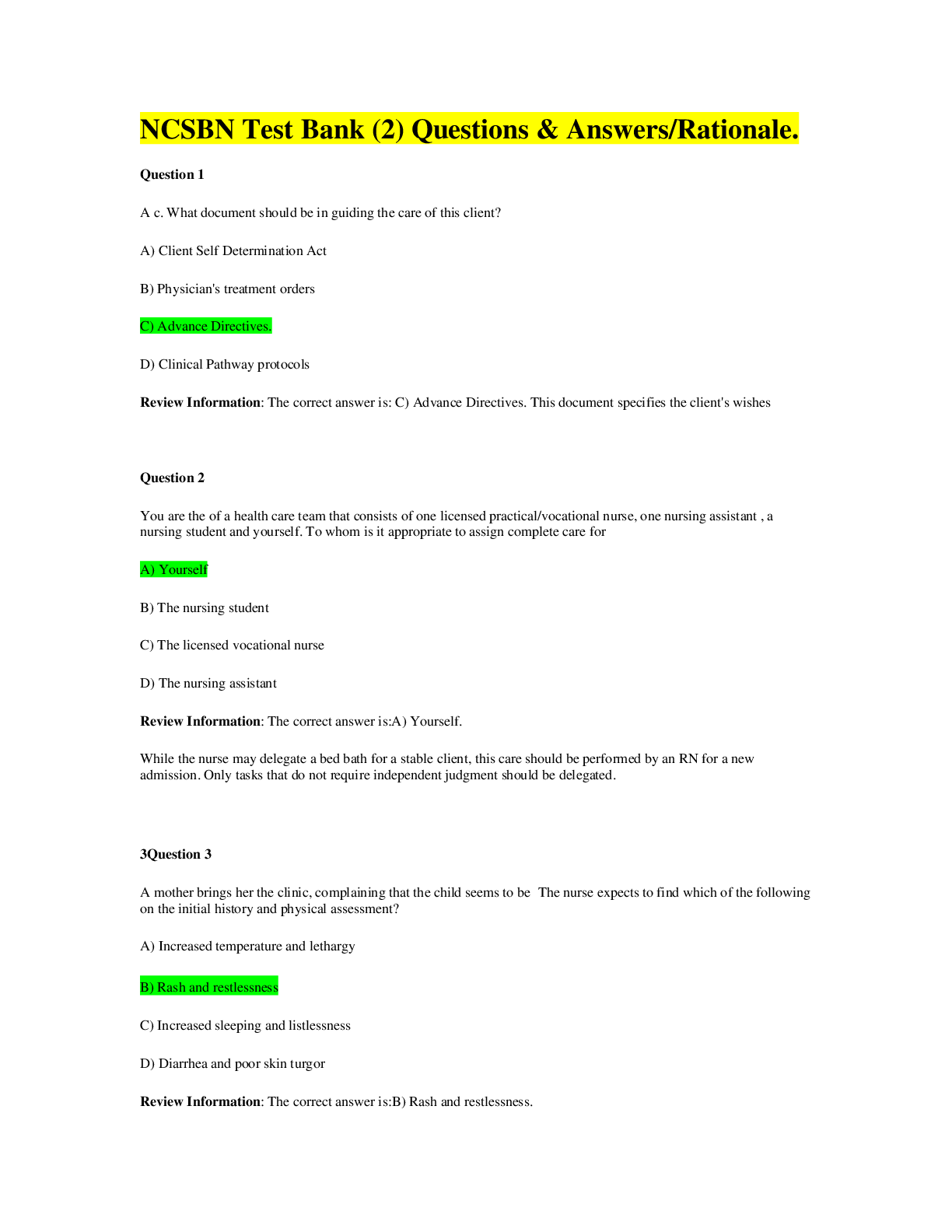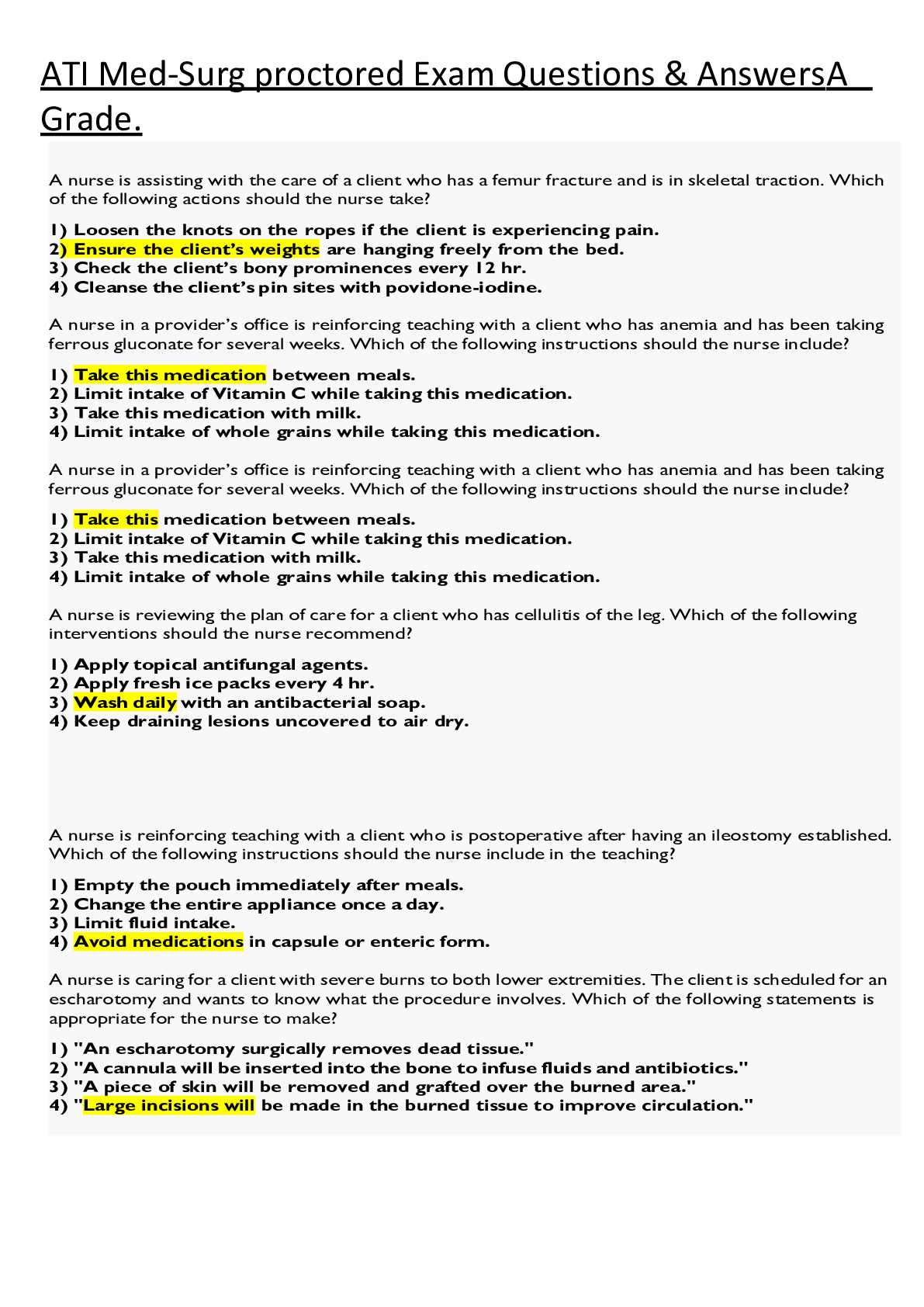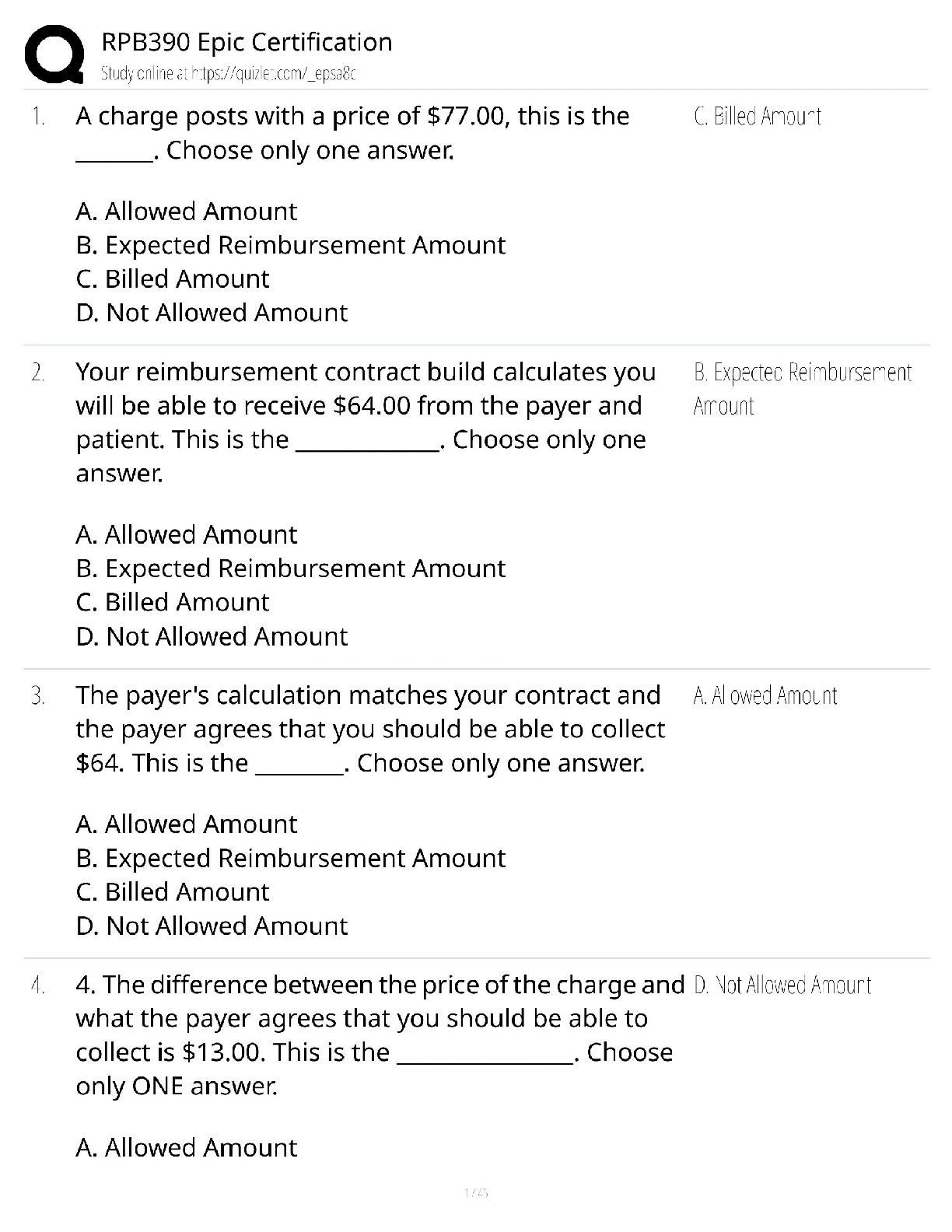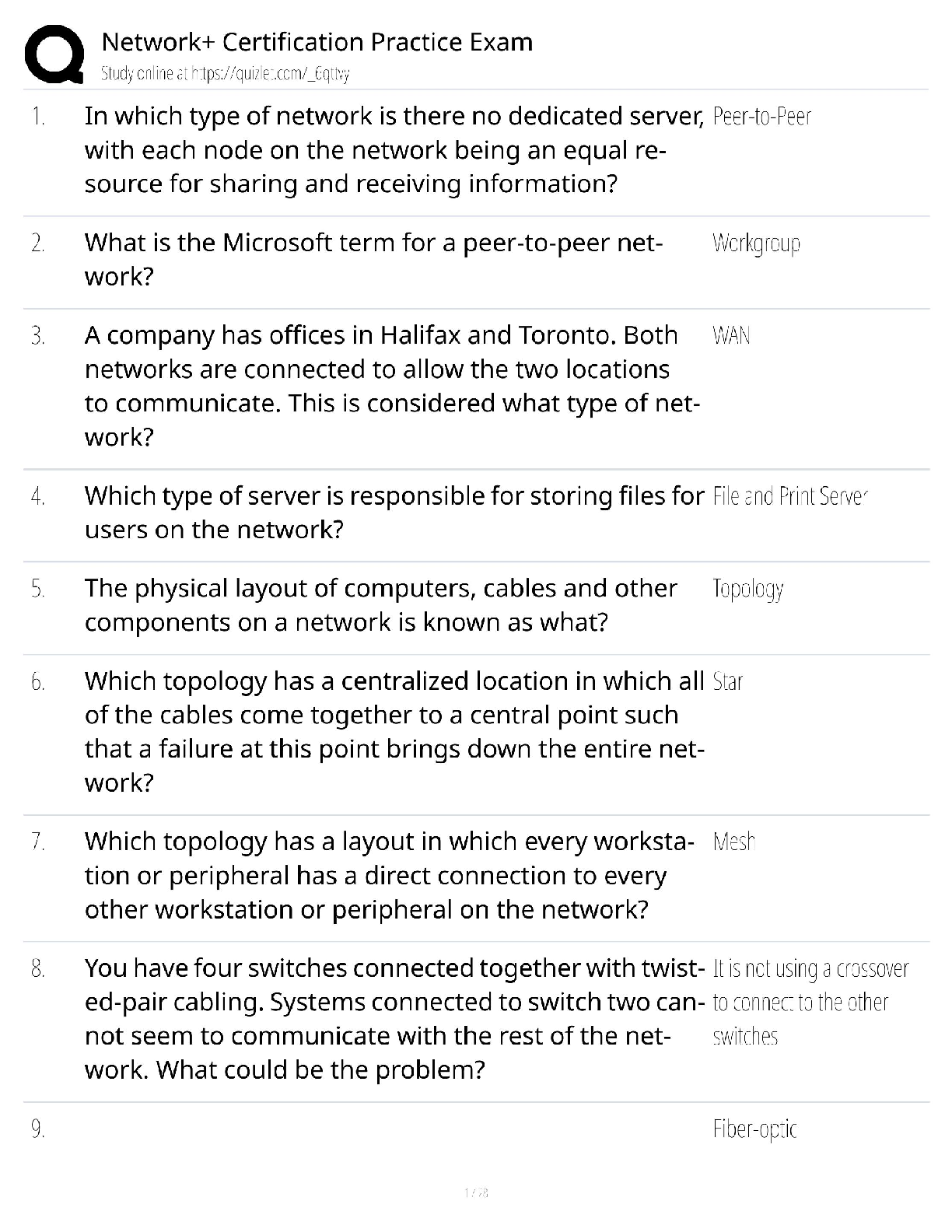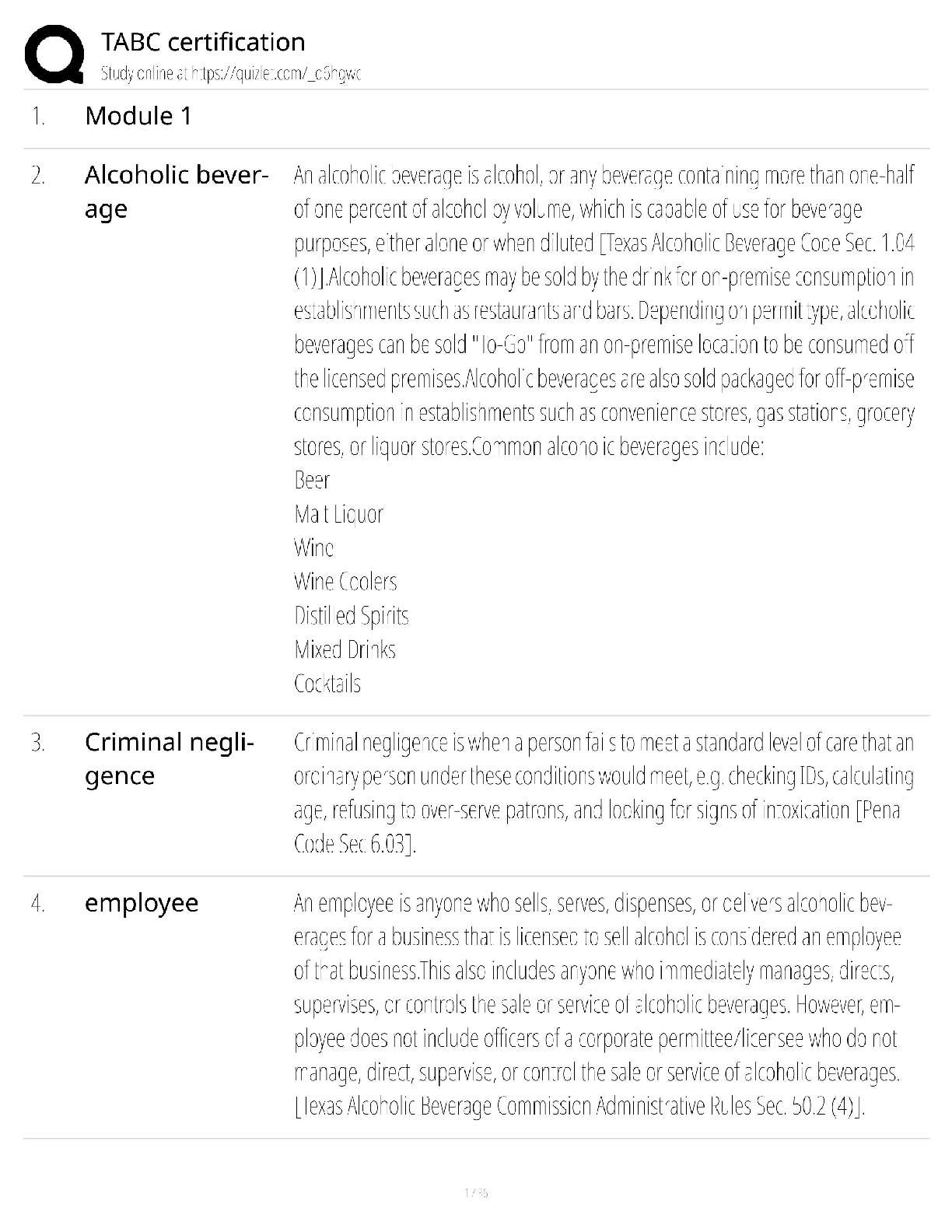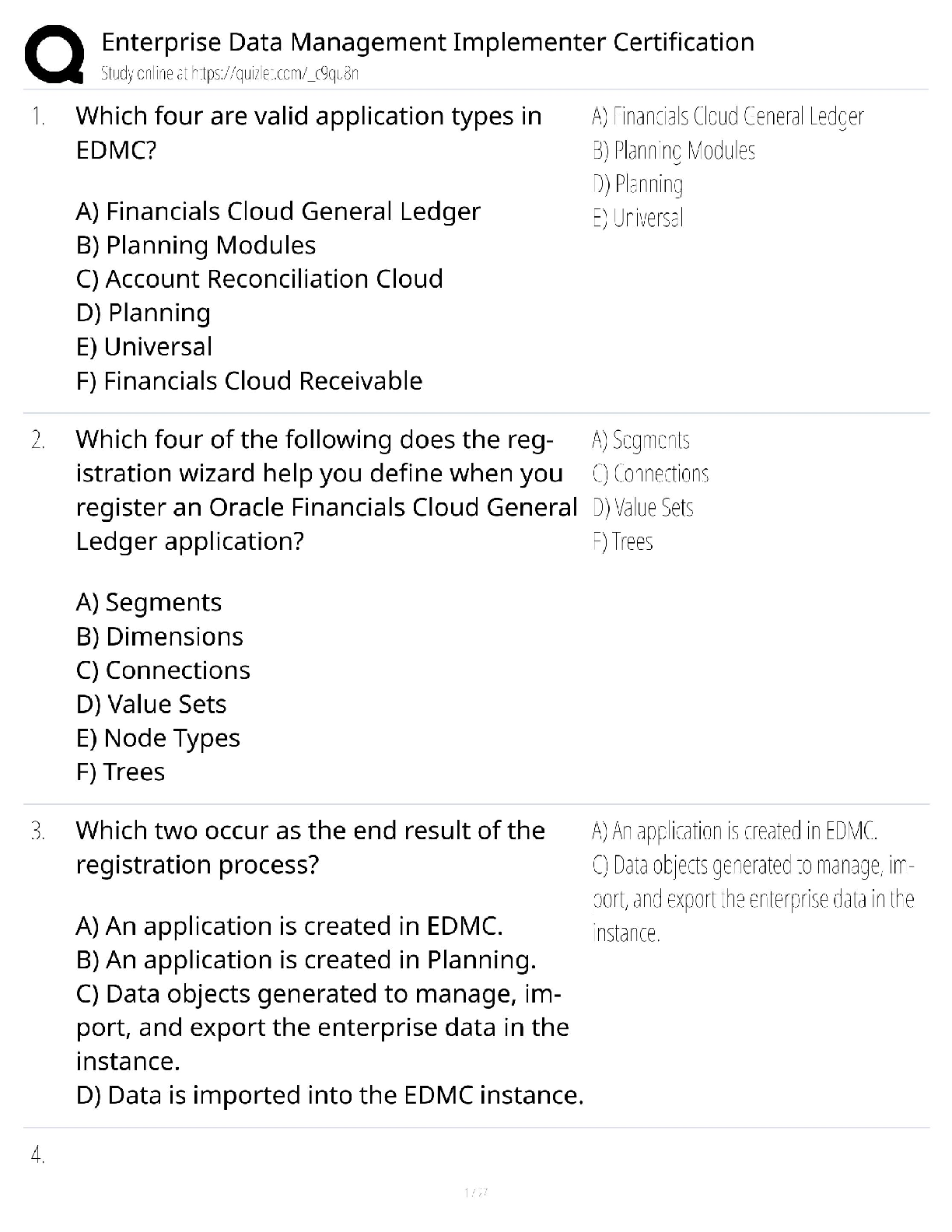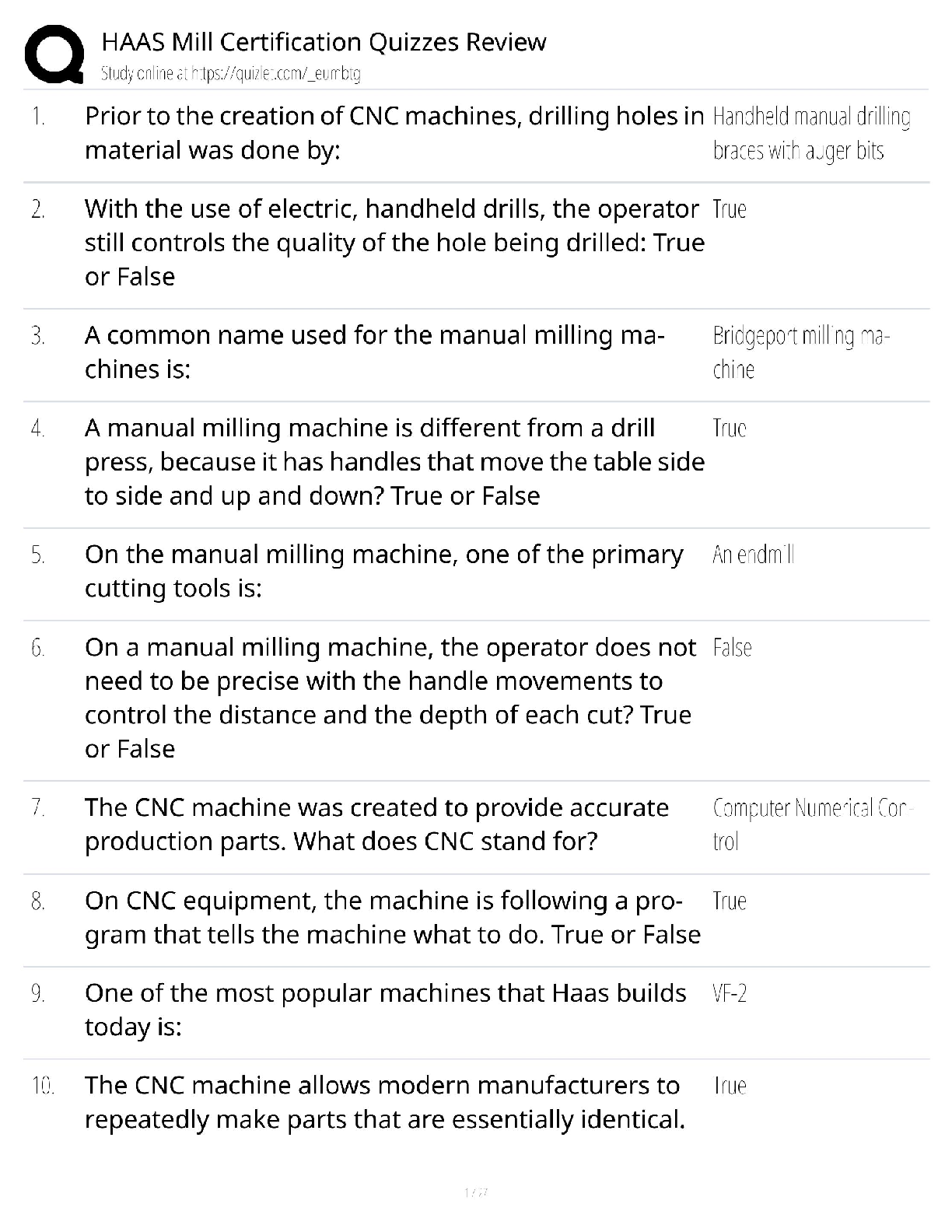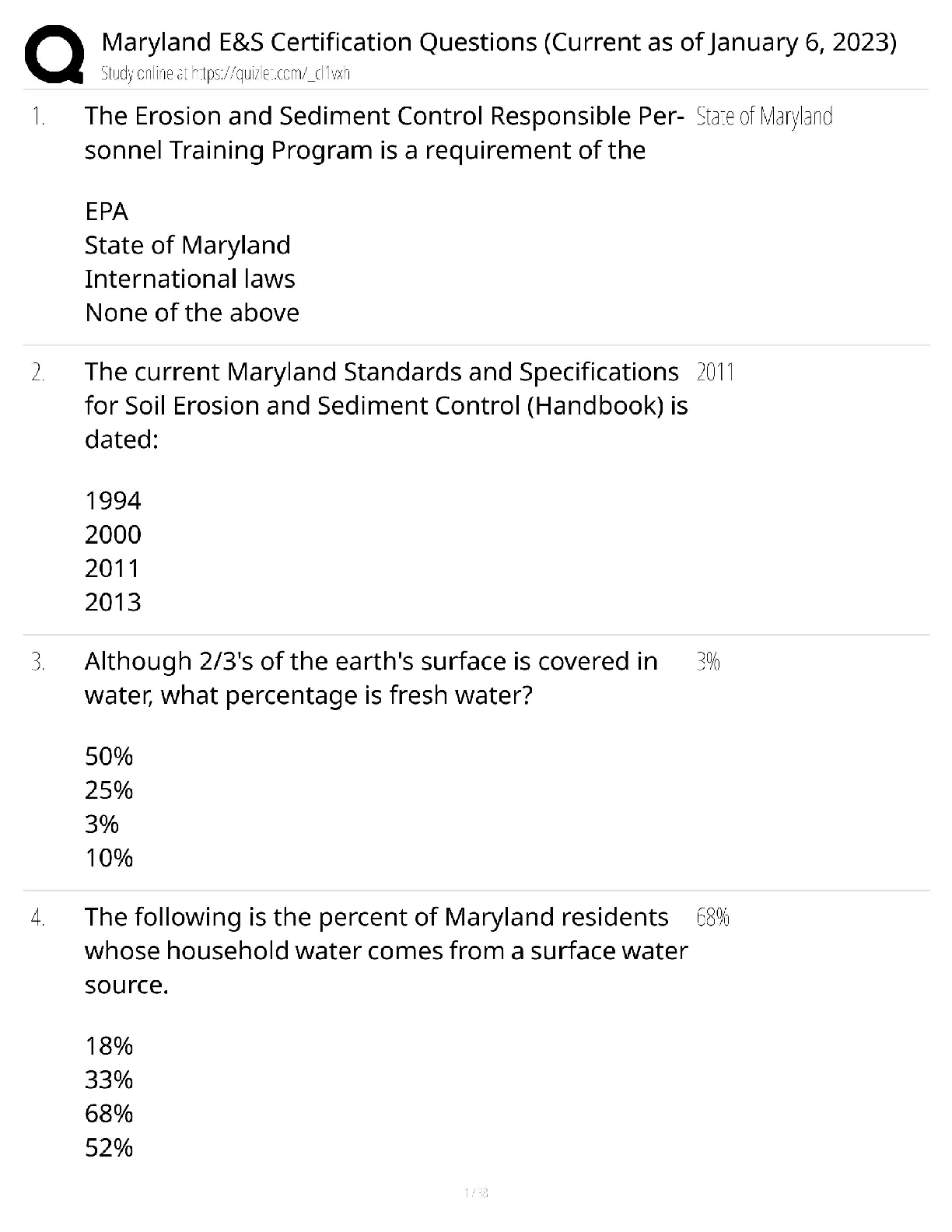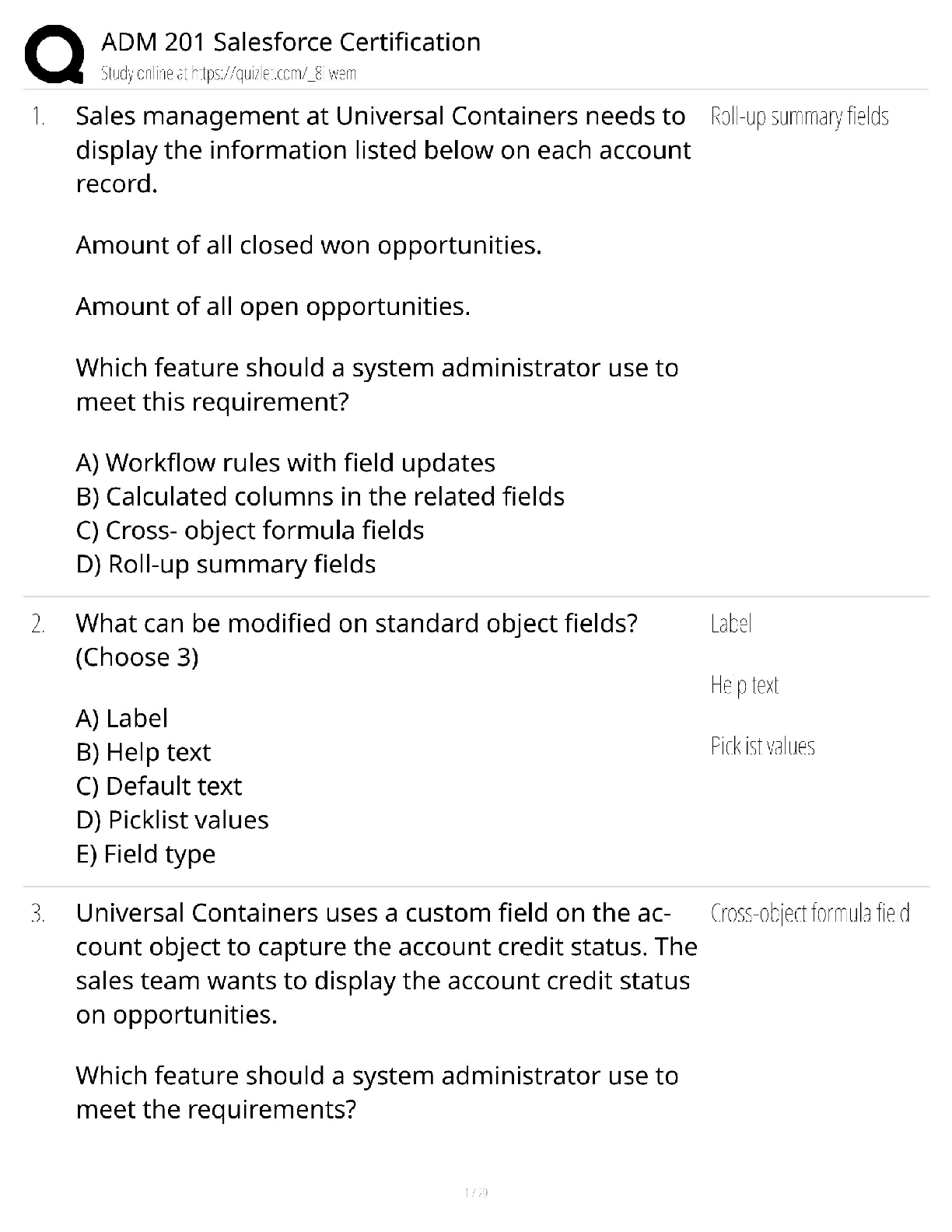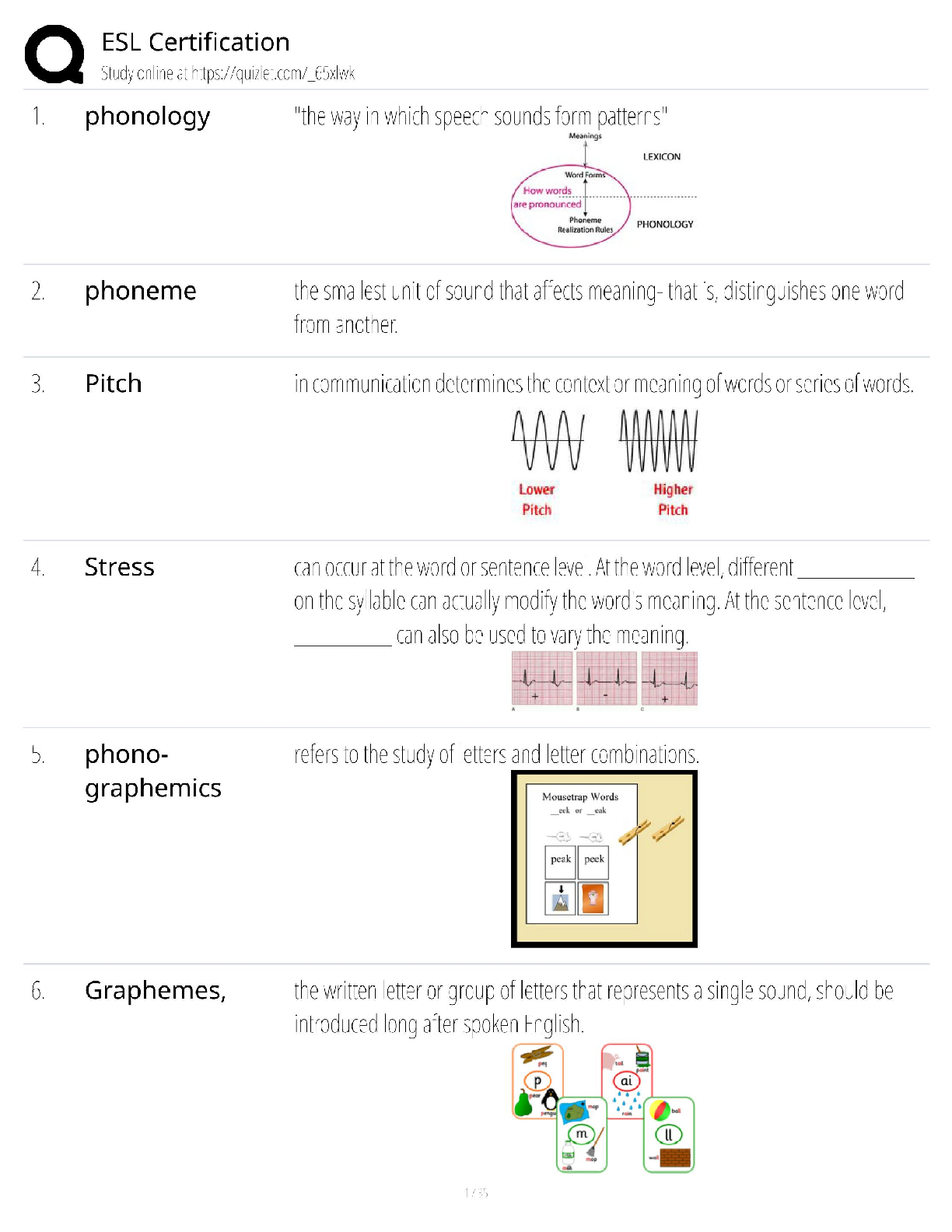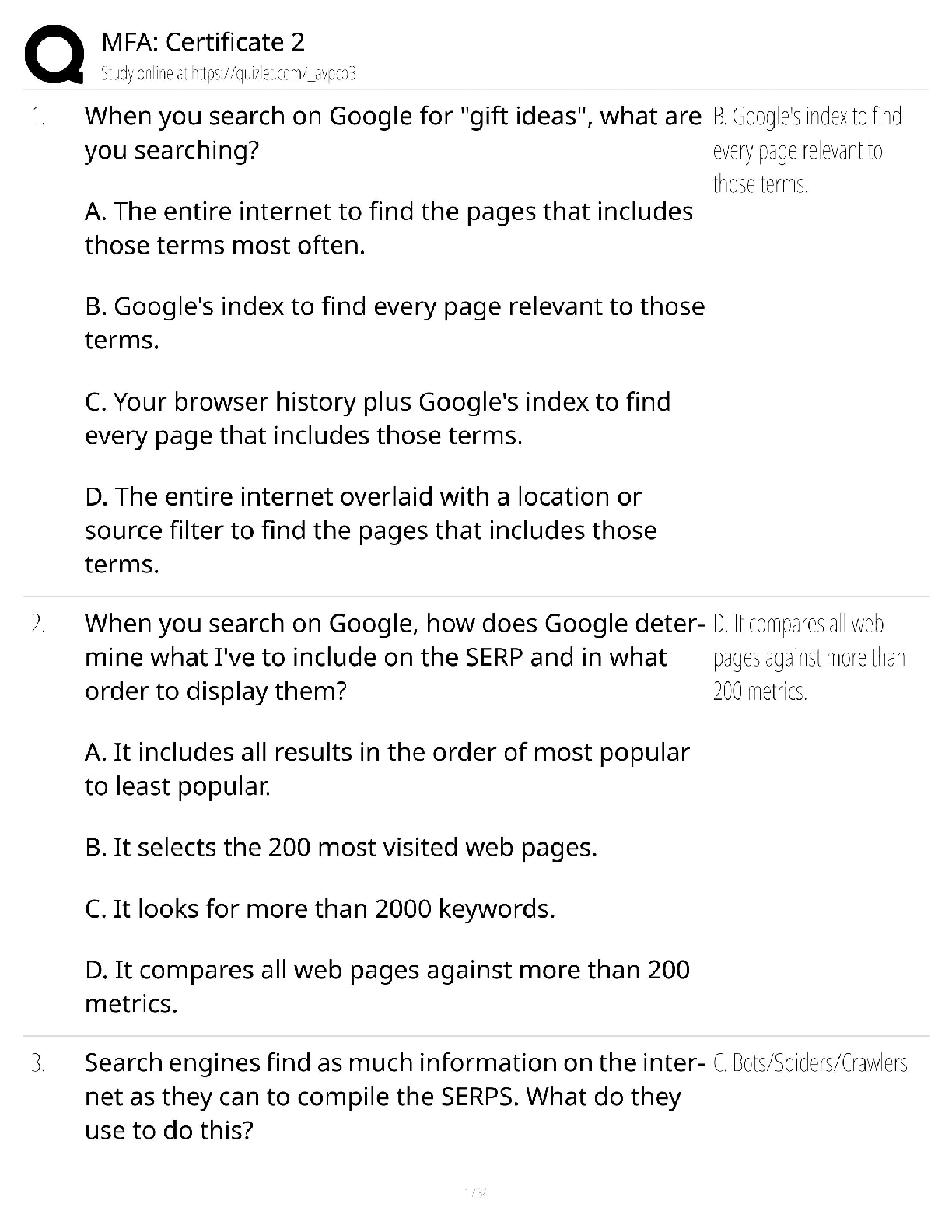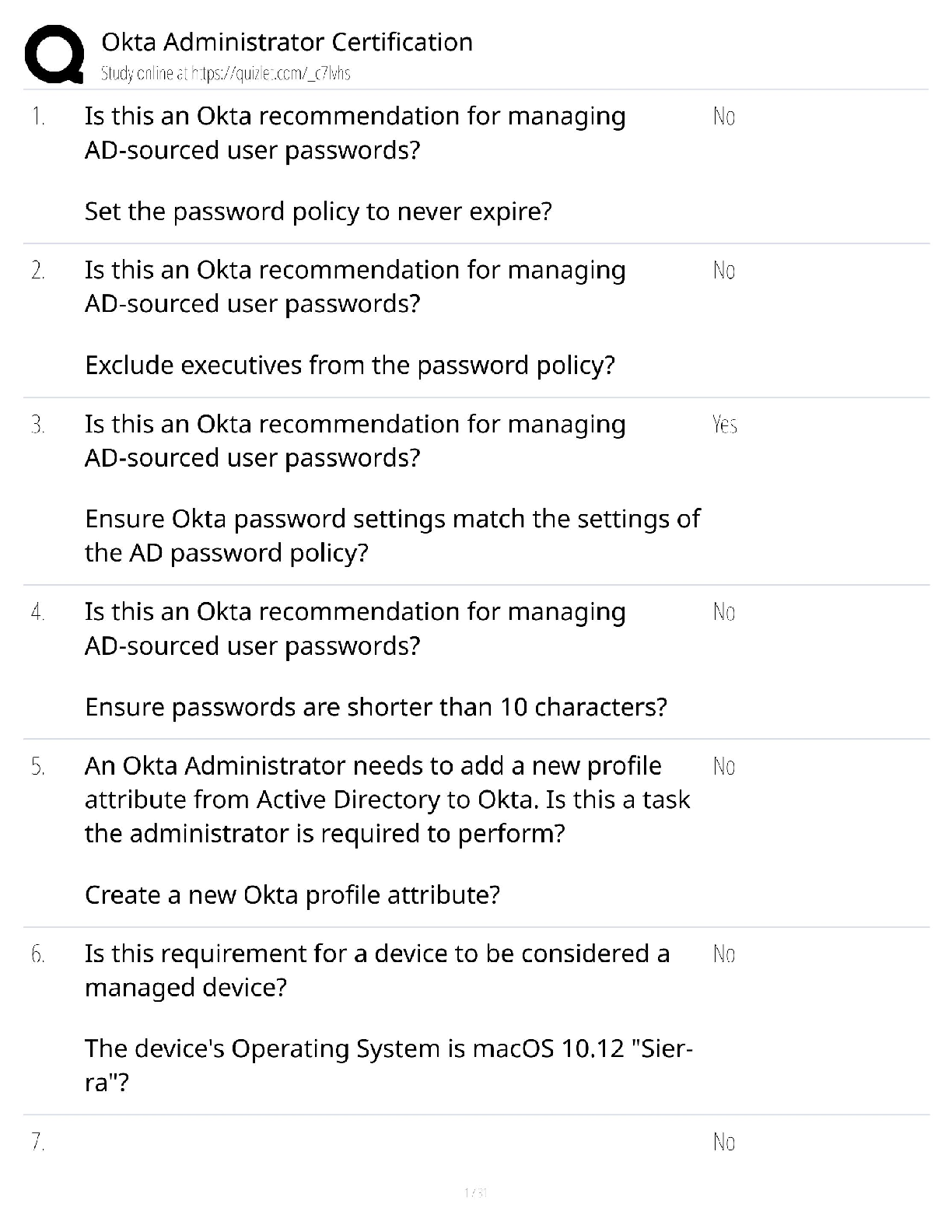Health Care > QUESTIONS & ANSWERS > HSM 543 : Quizzes - Complete solutions (Explained) DeVry University, Keller Graduate School of Manag (All)
HSM 543 : Quizzes - Complete solutions (Explained) DeVry University, Keller Graduate School of Management.
Document Content and Description Below
HSM 543 Quiz Bank Week 1 Quiz 1. Question : (TCO A) The purpose of financial accounting is to provide information to _____. external users lenders suppliers the g ... overnment All of the above Question 2. Question : (TCO A) The most important objective of healthcare financial management is to _____. determine the tax status of the organization improve the marketing budget generate a reasonable net income follow accounting rules and regulations Question 3. Question : (TCO B) The rationale for having tax exempt organizations is the fact that _____. the economy still benefits from jobs generated and payroll taxes paid there are local real estate taxes collected from the organization the organization is actually relieving the government of the burden of providing the services All of the above None of the above Question 4. Question : (TCO A) Some of the identified CFO leadership skills include which of the following? Communicating clearly Providing leadership in day-to-day operations Managing resources and finances Creating a positive organizational culture All of the above Week 2 Quiz 1. Question : (TCO C) Third-party payers include government and insurance company programs. In the mid-1940s, plans allowed employers and/or employees to prepay to an insurance company that would then reimburse a hospital or physician of the employee's choosing. These were called health maintenance organizations (HMO). welfare benefit plans. commercial indemnity plans. ( ) self-pay plan. multiple employer welfare associations. Instructor Explanation: See Nowicki, page 77. Question 2. Question : (TCO C) Managed care organizations (MCOs) do all the following except manage the cost of healthcare. manage the quality of healthcare. be called commercial indemnity plans. ( ) manage access to healthcare. See Nowicki, page 79. Question 3. Question : (TCO C) Which law established a physician fee schedule? Medicare Title XVIII OBRA ( ) TEFRA The Social Security Amendments of 1983 Question 4. Question : (TCO C) The objective of accounts receivable management should be to increase revenue through extending credit. allow patients to pay their medical bills over an extended time period. reduce the collection period. increase the days in A/R. Week 3 Quiz 1. Question : (TCO D) The current ratio is a basic indicator of financial liquidity or the ability to meet financial obligations. ( ) indicator of the long-term profitability of the organization. seldom used in the healthcare industry as opposed to other industries. calculation using the results of operations and the total assets on the balance sheet. ratio calculated from managerial accounting reports. Question 2. Question : (TCO D) Temporary working capital is not needed if the firm has a permanent working capital. only used by nonprofit organizations. less expensive than permanent working capital. is the additional working capital needed to respond to seasonal fluctuations. ( ) Question 3. Question : (TCO D) Discuss how self-pay accounts should be handled as part of the organization's credit and collection policy. Question 4. Question : (TCO D) Discuss delinquency costs associated with accounts receivable. Week 5 Quiz 1. Question : (TCO D) The difference between operating margin and total margin is which of the following? Operating margin does not indicate profitability from ongoing operations. Operating margin is operating income/total operating revenue. Total margin is gross profit/total revenue. ( ) One is a profitability ratio and the other is an efficiency ratio. Neither ratio is used by management or external users of financial statements. Both are operating indicators. Question 2. Question : (TCO D) Cash flows can be from operations, financing, or investing. Give an example of a transaction that would be included in each of those categories. Question 3. Question : (TCO D) Discuss the role of explanatory notes. Question 4. Question : (TCO D) What is included in permanently restricted net assets? Week 6 Quiz 1. Question : (TCOs F and G) There are 10 LHIs (leading health indicators) that can significantly impact the amount of care we need and the intensity of that care. Describe two LHIs and how an individual can improve his or her ability to increase the quality and years of healthy life he or she will have. Question 2. Question : (TCOs F and G) Healthy People 2010 presented a strategic plan for health and identified specific responsibilities including the media's responsibility to improve health. Describe how the media impacts healthcare. Question 3. Question : (TCOs F and G) What percent of total healthcare expenditure does local government account for? [Show More]
Last updated: 3 years ago
Preview 1 out of 7 pages

Buy this document to get the full access instantly
Instant Download Access after purchase
Buy NowInstant download
We Accept:

Reviews( 0 )
$8.00
Can't find what you want? Try our AI powered Search
Document information
Connected school, study & course
About the document
Uploaded On
Mar 13, 2020
Number of pages
7
Written in
All
Additional information
This document has been written for:
Uploaded
Mar 13, 2020
Downloads
0
Views
131

